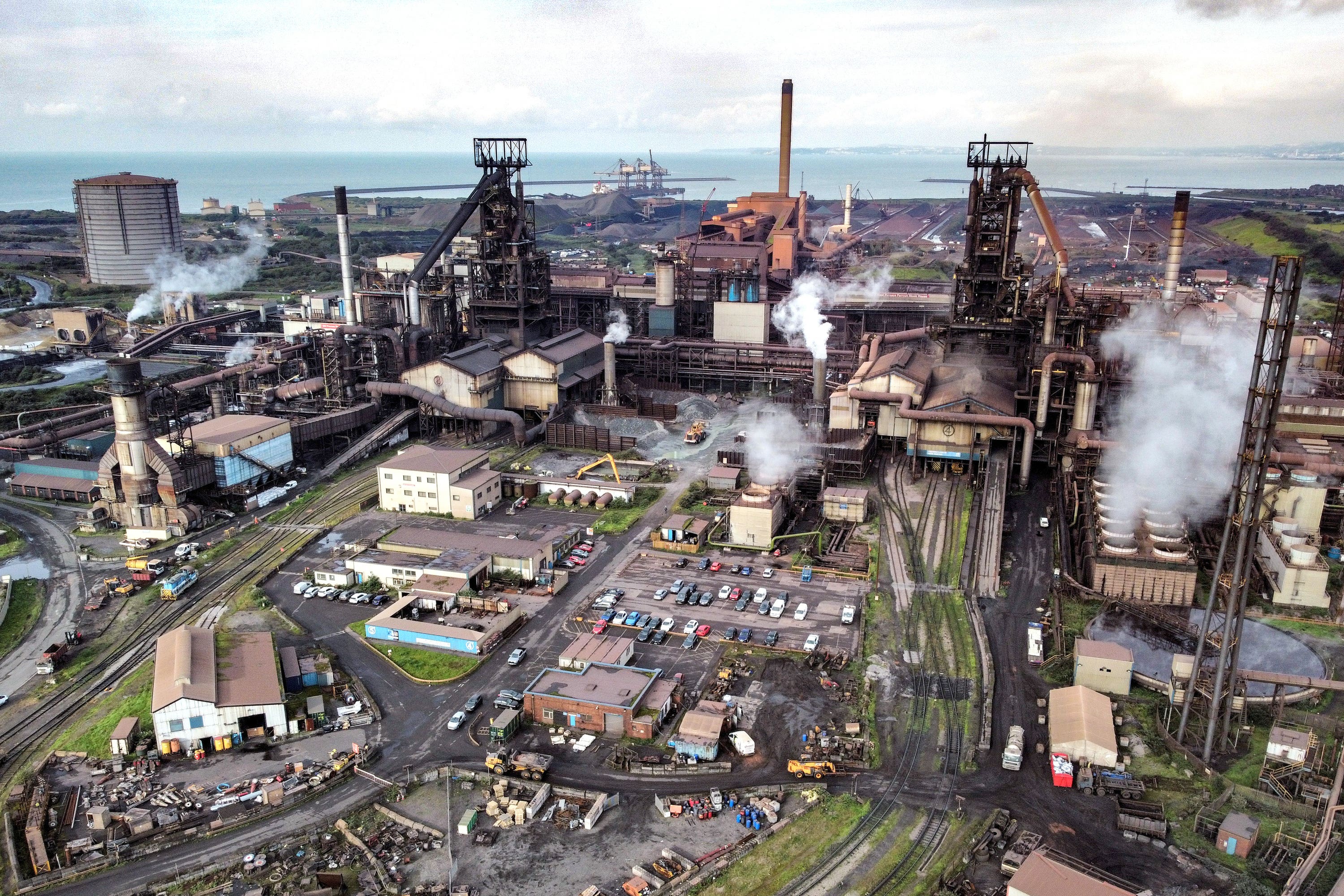Labour accused of ‘giving up the fight’ for steel jobs in Port Talbot
The Welsh First Minister has defended the UK Government’s efforts in negotiating a better deal for workers at Tata Steel.

The Welsh and UK governments have been accused of giving up the fight for jobs at Tata Steel, following the closure of the last blast furnace in Port Talbot.
Traditional steel production came to an end at the Welsh steelworks on Monday as blast furnace number four began winding down, with thousands of jobs to be lost.
Rhun ap Iorwerth, the leader of Plaid Cymru, has branded the closure “devastating,” arguing various governments had failed to do enough to protect workers.
They’d given the impression that they had a different strategy to the Tories, hadn’t they? But, no
But Eluned Morgan, the Welsh First Minister, has insisted the UK Government did all it could to negotiate a better deal.
Speaking at First Minister’s Questions on Tuesday, Rhun ap Iorwerth said: “The previous first minister said he would fight tooth and nail to save Tata Steel jobs.
“At the Labour conference, business Secretary Jonathan Reynolds promised an industrial strategy to wrestle global investment away from rival nations.
“They’d given the impression that they had a different strategy to the Tories, hadn’t they? But, no.
He added: “The Prime Minister’s promise that he had a plan for a viable future for steel, that he’d fight for every single job in Tata and for the future of steel in Wales.
“Can the First Minister tell us why Labour gave up that fight?”
The fact is that the Labour Government came in and we have been able to negotiate a better deal than the Tories
Baroness Morgan described the closure of the blast furnace as a “sad and significant day” but insisted redundancy terms had been improved.
She said: “I know that there will be a very difficult impact on the community.
“But the fact is that the Labour Government came in and we have been able to negotiate a better deal than the Tories.
“There have been improved redundancy and skill packages, there has been retention for training, and there has been an assurance that the £500 million that is going to be invested by the UK Government will be clawed back if jobs are not delivered.
“None of that was in the agreement that was negotiated by the Conservatives.”
She said the £1.25billion investment in an electric arc furnace on the site was “not something that should be sniffed at” which would bring upwards of 500 jobs during construction.
The ironworks will enter a transition phase until 2027 when steelmaking will resume through the electric arc furnace – part-funded by a £500 million grant from the UK Government.
The new furnace uses electric current to melt scrap steel or iron to produce steel, whereas blast furnaces use coke, a carbon-intensive fuel made from coal to produce steel.
The new furnace is less labour-intensive, requiring fewer workers to keep it running.
Tata has previously said the site was losing £1m a day and it was no longer viable to keep the blast furnace going.
Tata Steel UK chief executive Rajesh Nair said on Monday the company was doing “everything possible to minimise the impact on all those who are affected”.
Bookmark popover
Removed from bookmarks